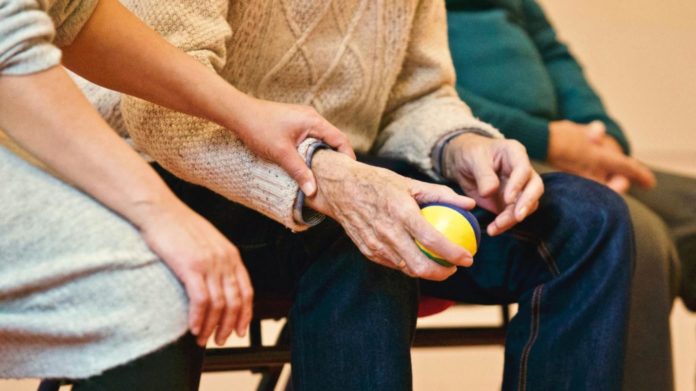The Centers for Disease Control and Prevention (CDC) assert that more than 1.5 million people currently live in nursing homes. This astounding figure is because of the rapid increase in population with the simultaneous improvement in living standards. The primary purpose of nursing homes is to provide a stable and comfortable life to the elderly, especially where their family members are too busy to take care of them but willing to pay for others to look after them.
Nursing Home Abuse – What to Know?
More often than not, the elderly who are weak fall prey to neglect and abuse at nursing homes, especially if the nursing staff is less and there is too much responsibility on a few people. In such situations, it is easy for nursing staff to neglect their duties or take undue advantage of the residents. Nursing staff can also become greedy and demand bribes before fulfilling their responsibilities.
In most cases, the authorities do not notice the neglect and abuse residents face at nursing homes. Often the victims also refrain from reporting the issues because, with increasing age, people become frailer and are afraid to fight back or stand up to bullies that attack them physically or verbally. Additionally, the elderly may have trouble seeing and hearing properly, which enables others to take advantage of them. Since elders are often limited physically and mentally, caretakers can get fed up if they are troublesome and take out their anger on them.
Since caretakers at nursing homes are usually the perpetrators of this crime, it is the responsibility of the family and friends to be perceptive and to recognize the signs of nursing home neglect and report the incident to the appropriate authorities and urge them to take action.
These numerous warning signs of abuse to the elderly should raise a red flag and help you discover what is happening to your loved ones. Since identifying these warning signs is crucial for ensuring the health and safety of your loved one, continue reading the article below.
Types of nursing home abuse
To effectively help your loved one suffering from abuse in a nursing home, you must know which type of nursing home abuse it is. Most people imagine physical injuries when they encounter the term “nursing home abuse.” However, this phrase also comprises neglect, sexual assault, emotional harm, and other issues.
- Physical Abuse
If a staff member intentionally performs an act that causes physical injury to a senior, it is classified as physical abuse. Examples of physical abuse comprise shoving, kicking, and striking a resident.
- Sexual Abuse
Any form of forced and unwanted sexual activity with a senior classifies as sexual abuse. Although it may sound unbelievable, in 2017, CNN reported numerous cases where staff members sexually assaulted nursing home residents.
- Neglect
Perhaps the most common hardship that residents encounter at nursing homes is neglect. Staff members tend to leave residents alone for extended periods, neglecting their meals, exercises, and baths, jeopardizing their health. Extreme neglect can result in sepsis, dehydration, and pressure ulcers, which progress into more deadly conditions.
Signs of Nursing Home Abuse
The warning signs of abuse differ from one person to another, depending on the situation. Since the types of abuse and associated injuries are numerous, you must remember that the warning signs may not always be familiar or what you would expect in a similar situation. Therefore, the Administration on Aging (AOA) and the National Institute on Aging advise being perceptive to any unusual sign from your loved one. The warning signs of abuse can signify anything from subtle carelessness to heinous physical abuse.
Signs of Physical Abuse
If your loved one develops sudden injuries or physical ailments without rational explanation, you should consider it a sign of physical abuse. Such injuries could include.
- Welts, scars, or bruises on the body
- Unexplained sprains, dislocations, and broken bones
- Rope marks on the victim’s wrists indicate signs of restraint.
- Broken eyeglasses, which indicate that someone struck or shoved the victim
Signs of Emotional Abuse
The signs of emotional abuse usually reflect in someone’s change of behavior. The victim can develop unexplained behavioral patterns to cope with the severe distress they may be encountering because of the cruelty of the caregivers. Some common signs of emotional abuse include the following.
- A drastic change in the normal behavior of your loved one, especially if it resembles symptoms of dementia. Other warning signs include mumbling, sucking one’s thumb, or rocking, which symbolize distress.
- Social isolation by the caregiver who refuses to let the residents interact with their family and friends
- A rude and uncaring caregiver uses humiliating words while addressing the patient.
Sexual Abuse Signs
The signs of sexual abuse are hard to miss and can also be medically ascertained. These include the following.
- An unexplained sexually transmitted disease in your loved one
- Signs of trauma, such as swelling or bruising, around the genitals
- Torn underwear depicting signs of struggle
- Bloody underwear
- Bleeding from the vagina or anus unrelated to a medical condition
Signs of Neglect
Carelessness on the part of nursing staff can also present signs and symptoms that show how poor care and unfulfilled responsibilities can cause innocent residents to suffer. Some warning signs of mistreatment or neglect of residents include the following.
- The nursing home living areas lack basic amenities such as clean water, heat, or electricity.
- There is soiled bedding and dirty, tattered clothing.
- Unexplained weight loss in your loved one suggests a lack of proper nutrition.
- The deterioration in health and aggravated illness suggest that the resident is not receiving medication on time.
- Poor personal hygiene of the resident shows that the caretakers are not bathing them as frequently as they should.
- The appearance of bedsores or ulcers on the body because of lack of exercise and physical therapy.
Conclusion
The first step you should take when you suspect a nursing home resident is suffering abuse is to contact 911 or your local law enforcement authority. Then you must raise your voice if you or your loved one has experienced nursing home abuse or neglect. If you bring your concern to light and urge the proper authorities to take legal action, it can enable the healing process to begin and deter people from committing such acts in the future. In addition, fighting for justice and holding corrupt nursing home facilities accountable will help ensure the safety of future residents.
















